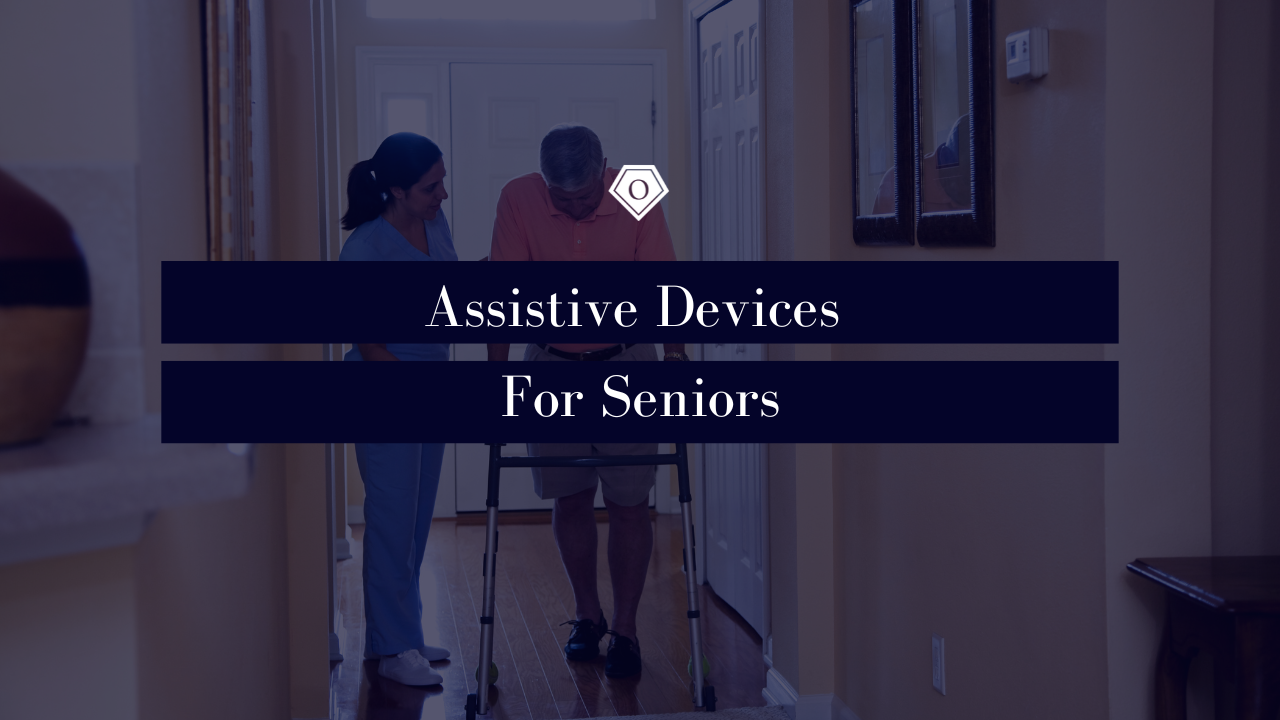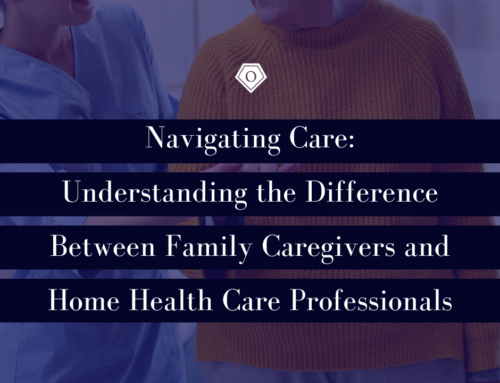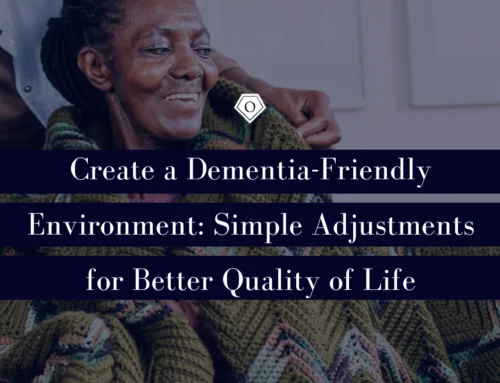As we age, it’s essential to maintain independence and enhance the quality of life, and assistive devices play a crucial role in achieving these goals. Whether you’re a family caregiver seeking ways to support your aging loved ones or a senior searching for tools to enhance daily living, this guide will explore a range of assistive devices designed to promote safety, mobility, and overall well-being.
Determining if your loved one needs an assistive device involves observing their daily activities, assessing their physical abilities, and considering any difficulties they may be experiencing.
Indicators that your loved one needs an assistive device:
- Mobility challenges: If your loved one has difficulty walking, balancing, or navigating stairs, they may benefit from mobility aids such as canes, walkers, or wheelchairs.
- Falls or balance issues: Frequent falls or a noticeable decline in balance can indicate the need for assistive devices like grab bars, handrails, or a stairlift to enhance safety and stability.
- Difficulty with everyday tasks: If your loved one struggles with tasks such as getting in and out of bed, sitting down or standing up from chairs, or reaching for objects, assistive devices like adjustable beds, lift chairs, or reachers can provide support.
- Hearing or vision impairments: Hearing aids or visual aids like magnifiers or talking watches may be necessary if your loved one experiences hearing loss or has difficulty seeing clearly.
- Chronic pain or joint stiffness: Assistive devices like orthopedic cushions, braces, or ergonomic utensils can alleviate discomfort and aid in performing daily activities for individuals with conditions like arthritis.
- Medication management challenges: If your loved one has difficulty organizing or remembering to take medications, pill organizers or medication reminder systems can be helpful.
- Safety concerns in the bathroom: Slippery surfaces and difficulty getting up from the toilet can be addressed with the installation of grab bars, raised toilet seats, or shower chairs.
- Caregiver strain: If providing physical assistance to your loved one becomes increasingly challenging or puts a strain on your own well-being, assistive devices can help both the senior and the caregiver by reducing the physical demands.
It’s important to have open and honest conversations with your loved one about their needs and any difficulties they may be facing. Consulting with healthcare professionals, such as doctors, occupational therapists, or geriatric specialists, can also provide valuable insights and guidance on the appropriate assistive devices for their specific situation. Remember, the goal is to enhance their independence, safety, and overall quality of life.
Ten assistive devices to consider for seniors:
- Mobility aids: Canes, walkers, and rollators are assistive devices that provide stability and support for seniors with mobility challenges.
- Grab bars: These sturdy bars are installed in bathrooms, near toilets, and in showers to assist seniors with balance and prevent falls.
- Stairlifts: Designed for homes with multiple levels, stairlifts are motorized chairs that glide along a rail, enabling seniors to navigate stairs safely.
- Reachers and grabbers: These long-handled tools help seniors reach items on high shelves or pick up objects from the floor without straining or bending.
- Hearing aids: Hearing aids amplify sounds for individuals with hearing loss, improving communication and overall auditory experience.
- Medication management devices: Pill organizers, automated pill dispensers, and medication reminder systems help seniors keep track of their medications and adhere to prescribed schedules.
- Adjustable beds: These beds allow seniors to adjust the height, angle, and position, promoting comfort, alleviating pain, and aiding in getting in and out of bed.
- Adaptive utensils: Ergonomically designed utensils with larger handles or modified grips make eating and self-feeding easier for seniors with limited dexterity or hand strength.
- Talking watches and clocks: These devices announce the time and date aloud, providing seniors with visual or cognitive impairments the ability to stay informed.
- Personal emergency response systems (PERS): PERS devices, such as wearable buttons or pendants, allow seniors to call for help in case of emergencies, connecting them to a monitoring center or designated contacts.
These are just a few examples of the wide range of assistive devices available to enhance the lives of seniors and promote their independence and well-being. The specific needs and preferences of seniors may vary, so it’s essential to assess individual requirements and consult with
Caregivers need to understand the key considerations when selecting the most suitable options. Making informed choices involves assessing individual needs, prioritizing safety and comfort, ensuring ease of use, and considering quality, affordability, and professional guidance. By carefully evaluating these aspects, caregivers can ensure that the chosen assistive devices effectively support the senior’s independence, well-being, and overall quality of life. Let’s delve into the essential factors caregivers should consider when selecting assistive devices for their elderly loved ones.
When choosing assistive devices for seniors, caregivers should consider the following factors:
- Individual Needs: Assess the specific needs and abilities of the senior. Consider their physical condition, mobility limitations, sensory impairments, and cognitive abilities to determine the most appropriate assistive devices.
- Safety: Prioritize safety features in the devices. Ensure that they are stable, sturdy, and designed to prevent accidents or injuries. Look for features like non-slip surfaces, secure fastenings, and proper weight capacity.
- Comfort: Consider the comfort level of the senior when using the device. Look for adjustable options customized to the individual’s preferences and physical measurements.
- Ease of Use: Choose devices that are user-friendly and intuitive. Consider the senior’s cognitive abilities and motor skills to ensure they can operate the device independently or with minimal assistance.
- Quality and Durability: Invest in high-quality devices that are built to last. Check reviews, certifications, and ratings of the products to ensure reliability and longevity.
- Fit and Size: Ensure that the device is appropriately sized and fits the senior’s body proportions. Poorly fitting devices can be uncomfortable and may not provide the desired level of support or functionality.
- Cost and Affordability: Evaluate the device’s cost and consider the caregiver’s or senior’s budgetary constraints. Explore options for insurance coverage, Medicare benefits, or financial assistance programs that may help offset the expenses.
- Trial Period or Return Policy: Choose devices that come with a trial period or a return policy. This allows caregivers and seniors to test the device and determine if it meets their needs and expectations.
- Professional Consultation: Seek advice from healthcare professionals, such as occupational therapists or durable medical equipment specialists. They can provide expert guidance and recommendations based on the specific requirements of the senior.
- User Reviews and Recommendations: Read user reviews and seek recommendations from other caregivers or seniors who have used similar devices. Their firsthand experiences can offer valuable insights and help in making informed decisions.
Every senior’s situation is unique, so it’s essential to consider their needs and consult healthcare professionals for personalized recommendations when choosing assistive devices.
The value of assistive devices for seniors cannot be overstated. These devices play a pivotal role in enhancing the quality of life, promoting independence, and ensuring the safety of our aging loved ones. By providing support in various areas such as mobility, communication, medication management, and daily tasks, assistive devices empower seniors to maintain their dignity, autonomy, and sense of self. They enable individuals to overcome physical limitations, navigate their surroundings with confidence, and continue to actively engage in the activities they enjoy. As caregivers, family members, and society as a whole, let us recognize and embrace the immense value of assistive devices for seniors, as they are instrumental in enabling them to lead fulfilling, vibrant, and meaningful lives in their golden years.

Choosing long-term care is a burden that often falls to adult children and family caregivers. Our team is here to support you throughout the journey. Download our booklet to explore options that are right for your aging loved one and family.
Wondering what type of long-term care is best for you or your loved one? Our free booklet will help you evaluate the differences and costs between home care, nursing homes and assisted living facilities.






